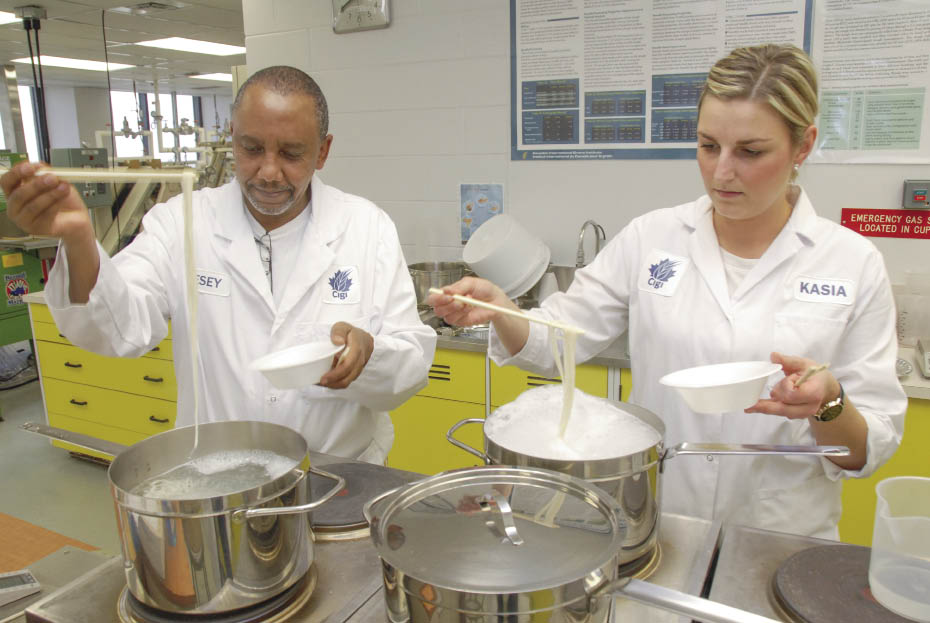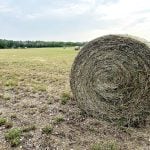The technical institute for Canadian field crops will get its core funding from now on through the Prairies’ major grain export firms and its three provincial wheat grower commissions.
Cigi, the Canadian International Grains Institute, on Tuesday announced the new funding model, plus a new governance model setting up a new 10-member board of directors representing its sponsor organizations.
Winnipeg-based Cigi said the new funding formula will see the three wheat commissions and seven grain firms provide $7.7 million over the next two years, representing the institute’s “core funding.”
Read Also

Alberta harvest wrapping up: report
Harvest operations advanced to 96 per cent complete in Alberta as of Oct. 7, with only a few late-seeded cereal and canola fields remaining, according to the latest provincial crop report.
The seven grain firms supporting Cigi will include:
- privately-held Winnipeg grain companies Richardson International, Paterson Grain and Parrish and Heimbecker;
- Viterra, the Canadian grain arm of commodity firm Glencore;
- the Canadian arm of U.S. agrifood firm Cargill;
- G3 Canada, the privatized former Canadian Wheat Board (CWB); and
- five farmer-owned grain terminal companies in Saskatchewan and Alberta, represented by the Inland Terminal Association of Canada.
The Alberta Wheat Commission, Saskatchewan Wheat Development Commission and the Manitoba Wheat and Barley Growers Association will provide their shares of Cigi funding through their respective wheat checkoffs.
According to the wheat commissions in a separate statement, Cigi has asked the three commissions for funding that matches grain industry contributions over the next two crop years.
The commissions’ funding for Cigi replaces farmer checkoff funding the institute received through the Western Canadian Deduction. That checkoff, set up in 2012 by then-federal agriculture minister Gerry Ritz following the deregulation of the CWB, sunsets on July 31, Cigi noted Tuesday.
“Today’s announcement represents the culmination of months of consultations involving the value chain,” JoAnne Buth, Cigi’s CEO since 2014, said in a release Tuesday. “We are extremely pleased that the provincial wheat commissions and the grain companies and handlers developed a consensus on a sustainable funding and governance model for Cigi.”
Where Cigi’s board had previously reflected its founding organizations, with members from the federal government, CWB and Canadian Grain Commission, the institute in 2013 reworked its governance to include representation from farmers as well as exporters, processors and others in the industry.
Under the latest funding and governance model, however, the first board will include five representatives from the wheat commissions and five representatives from the grain handler/exporter sector, elected June 29 at Cigi’s annual meeting.
Kevin Bender, a Sylvan Lake, Alta. farmer and the Alberta Wheat Commission’s vice-chair, will chair Cigi’s new board. Brent Watchorn, Richardson International’s executive vice-president for marketing, will be the new board’s vice-chair, while Jim Smolik, head of corporate affairs for Cargill Canada, will be board secretary.
New board members also include Drew Baker of the Manitoba Wheat and Barley Growers Association; Bill Gehl and Harvey Brooks of the Saskatchewan Wheat Development Commission; Gary Stanford of the Alberta Wheat Commission; Trent Rude of Viterra; Jean-Marc Ruest of Richardson International; and (unavailable for the photo above) Ward Weisensel of G3 Canada.
Three previous Cigi board members, including chair Murdoch MacKay and directors Henry Van Ankum and Lawrence Yakielashek, will remain with the board as observers “to provide continuity during the transition,” Cigi said.
Randy Johner and Jim Wilson, farmer members of Cigi’s previous board, will retire as directors.
Bender, in Tuesday’s release, hailed the outgoing board members’ “foresight and determination… in guiding Cigi through a period of significant industry change.”
The new board, he said, comes to an organization with “a long and distinguished history of working on behalf of farmers and industry to promote and demonstrate the quality and functionality of Canadian grain in international markets.”
Cigi, set up as a not-for-profit body in 1972 with federal government and farmer funding via the CWB, is now billed as an independent organization working with field crop value chains in Canada and internationally.
The institute today provides applied research, training and technical support services to drive development and use of Canadian crops — including wheat, durum, barley, canola and other oilseeds, pulses and other special crops such as canaryseed and mustard — for domestic and export markets.
Cigi, which still also gets federal funding via the AgriMarketing and AgriInnovation programs, broadened its activities in recent years to include pulse crop product and market development.
That pulse crop work, Cigi said, is now backed by the Canadian Agricultural Adaptation Program, Pulse Canada, Alberta Innovates Bio Solutions, Saskatchewan Pulse Growers, Manitoba Pulse and Soybean Growers, Manitoba’s Agri-Food Research and Development Initiative (Manitoba Agriculture) and Warburtons. — AGCanada.com Network
















